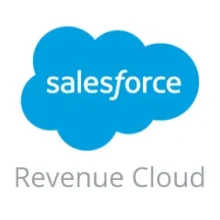IBM CPQ is a powerful CPQ platform for retailers and eCommerce businesses. Its ability to handle complex sales processes simplifies the buying experience for national and multinational vendors. IBM CPQ’s value extends beyond its ability to generate quotes and facilitate transactions. Advanced analytics features embedded within the platform afford businesses valuable insights into customer behavior, empowering them to create and offer products that align closely with buyer preferences.
Its additional platforms — Order Management, Store Engagement, Call Center, and Intelligent Promising — equip businesses with a full suite of capabilities to engage customers, optimize store operations, deliver top-notch experiences, and sell the right products to target customers through channels they already use.
Why this product is good
Positives of IBM's CPQ Software
Product Details
What is IBM CPQ?
IBM CPQ (also called IBM Sterling CPQ) is a cloud-based, customizable CPQ platform that helps manufacturers, distributors, eCommerce sellers, and retailers streamline the sales process, optimize channel selling, and grow their bottom line with intelligent product and service configuration. It eliminates many challenges of multi-tiered selling, helps vendors create digital experiences, and assists them in understanding customer needs with dynamic product recommendations.
Features include:
- Powerful configuration engine
- Customer-specific product bundles
- Automated order capture, quoting, and pricing modules
- Customizable workspaces for order, invoice, and return oversight
- ERP/fulfillment system integration
- Custom-tailored service contracts
- Spare parts management
Powerful Configuration Engine: The IBM Sterling Omni-Configurator allows you to define, customize, and choose connections between complex products, services, and bundles tailored to your customer’s or partner’s needs. Implementing and maintaining configuration rules is easy through the Visual Modeler, which allows users to configure models with logically structured data sources while enabling customers and partners to independently create, place orders, and manage post-order service transactions efficiently. A single model structure works on several different channels (Store, Web, Call Center) and devices (mobile, desktop, tablet, point of sale). And it provides direct support to your CSRs, partners, and sales reps.
Customer-Specific Product Bundles: IBM CPQ has the flexibility to create one-of-a-kind product bundles for each customer, including product kits, custom assemblies, and aftermarket configurations. Bundles are complete with interactive materials that show customers how to use the product and the associated parts.
Automated Order Capture, Quoting, and Pricing Modules: When a buyer or seller configures a new order, IBM CPQ automatically turns it into an accurate quote, purchase order, and invoice. It also has automated pricing modules that can analyze multiple parameters to generate the optimal price for each customer, based on their specific requirements.
Customizable Workspaces for Order, Invoice, and Return Oversight: IBM CPQ provides custom-tailored workspaces for any team member involved in order management, offering a 360-degree view of all orders, invoices, and returns. This data is centralized in the system for easy access in case of a customer service problem and synced with the self-service module for customers who want to modify their own orders.
ERP/Fulfillment System Integration: IBM’s CPQ platform supports integration with nearly all ERP and order management systems through service-oriented architecture (SOA), and out-of-the-box integration with individual ERP system components (i.e., order management, purchasing, inventory, WIP, and returns).
Custom-Tailored Service Contracts: Service contracts in IBM CPQ are designed and managed specifically for product lines and customer segments. Sellers can quickly generate contracts that include service components and pricing options, or the platform can use its information repository to do it automatically.
Spare Parts Management: IBM CPQ also offers a solution for spare parts management, which helps retailers and distributors track product component usage, reduce inventory costs, forecast demand, and manage reverse logistics. They can also process orders and track returns in real-time.
What are the advantages of using IBM CPQ?
IBM CPQ Benefits
IBM offers numerous benefits to businesses in the eCommerce and retail sectors. A few of the most notable include:
- Improved efficiencies and reduced delays in the CPQ process
- Consistency in pricing and inventory data across the omnichannel
- Reduced selling costs for sales teams and CSRs
- Increased customer satisfaction and market share capture
- Streamlined experience for customers and partners
- Higher visibility into order and invoice statuses
- Fast integration with existing data infrastructure
What industries are CPQ solutions best suited for?
IBM Sterling CPQ for Industries
IBM Sterling CPQ is designed to address the challenges IT services, eCommerce, and Telecommunications companies face when quoting complex products and services. Here’s how it caters to them:
IT Services
Complex Service Configuration: IT services can be intricate and include various elements like software licenses, support packages, and implementation fees. Sterling CPQ enables technology services companies to create a flexible product catalog to handle these complexities. Sales teams and partners can easily configure service bundles specific to customer needs.
Partner Integration: Since the IBM Sterling ecosystem connects with your other systems via APIs, partners can log in to your CPQ portal and access product and pricing information. Different partners may sell different products from your catalog, and you can create special UIs and product/price visibility rules according to partner levels and types.
Multi-Channel Sales: Sterling CPQ enables sales across multiple channels, including direct sales, resellers, distributors, and online sales. This allows you to be flexible in partner selection and diversify your revenue streams, without worrying about complicating the customer experience or bogging down already-defined backend processes.
eCommerce
Peronalized shopping experience: Sterling CPQ personalizes the shopping experience and facilitates self-service ordering by guiding customers through product selection and offering recommendations for compatible or complementary products right on the website. Introducing new web storefronts for business lines, brands, and channels is easy, and IBM CPQ facilitates automated web-based order capture.
Increased Sales Productivity: Since customers and partners can configure and place their own orders and perform post-order service transactions, IBM increases sales efficiency. With a streamlined platform, sales reps and customer service agents can focus on closing deals and providing exceptional service rather than getting bogged down in complex configurations and pricing.
Streamlined B2B Sales: Within Sterling CPQ, you can create hierarchies of items, organized into groups for different purposes (e.g., how you categorize items for selling vs. maintenance vs. and partner-based selling). Plus, it with your existing B2B eCommerce platforms and practically any ERP system, enabling a smooth data flow between product configuration, the quoting process, order placement, and fulfillment. Up-to-date product availability and configuration rules lead to accurate product configurations. During the quoting process, that means you’ll have fewer errors and order fulfillment issues down the line.
Telecommunications
Advanced Configuration and Catalog Management: Within Sterling CPQ, you can create hierarchies of items, and then organize them into groups for different purposes (e.g., how you categorize items for selling vs. maintenance vs. and partner-based selling). The Catalog Management module also lets you manage entitlements (e.g., “Partner X can sell Items Y and Z” and “Customer A can buy Items B, C, and D”). Telecom offerings involve multiple components like data plans, phone lines, internet speeds, and device options, and the advanced category/attribute classification on the backend enables CPQ to automate the configuration process.
Streamlined Quoting: It’s easy for online sales reps, field sales representatives, or even individual customers to configure quotes through IBM CPQ’s adaptable interface. Salespeople have access to historical pricing and discounts, promotions, cross-sell/upsell prompts, and the ability to offer product bundles when building a quote. For instance, if a customer chooses a high-speed internet plan, CPQ might suggest a bundle that includes a streaming service subscription. Customers can accept or reject a quote within the system’s UI. When they accept, it’s automatically turned into an order and service contract.
Process Modeling: Process Modeling in Sterling Configure, Price, Quote involves setting up business workflows through pipelines. These pipelines represent your business’s end-to-end CPQ process, including the events, actions, conditions, and corresponding documents that take place (and when). You can set up different workflows for each different sales channel — field sales kiosks, over-the-phone help, channel partners, and self-service transactions — according to their specific selling environment.
Prices
IBM CPQ Pricing
IBM CPQ offers customized quote-based pricing via consultation with IBM’s sales team. According to online data, IBM CPQ pricing starts at $703 per year.
No free trial is available for IBM CPQ.
CPQ Integrations
Competitors and Alternatives to IBM CPQ
While it’s well-suited for larger businesses in the eCommerce and retail sectors, IBM CPQ alternatives may better accommodate smaller budgets and simpler needs. Companies with a more traditional CPQ approach—those without highly configurable or complex products—can benefit from more streamlined solutions. Additionally, subscription-based businesses may struggle to manage recurring revenue effectively with IBM CPQ.
Top IBM CPQ Alternatives
Salesforce CPQ
For businesses using Salesforce CRM and Revenue Cloud, Salesforce CPQ offers a seamless integration with your existing Salesforce environment for a familiar and user-friendly experience. This cloud-based solution streamlines the entire sales cycle, automating tasks from product configuration to contract finalization. Its guided selling tools ensure accurate quotes and uncover upselling opportunities, while advanced pricing and discounting features handle complex models like volume discounts and subscriptions. Real-time visibility into the sales pipeline empowers better decision-making, and streamlined contract management reduces manual processes, helping sales teams close deals faster and optimize revenue effectively.
QuoteWerks
While IBM CPQ caters to a broad audience, QuoteWerks specializes in industries like contract manufacturing, distribution, value-added reselling, and managed services, where intricate line-item quoting is essential. With over 115 integrations across CRMs, professional service automation tools, and accounting systems, QuoteWerks provides unparalleled flexibility for businesses seeking a fully integrated sales approach. Its standout features include detailed product information management, an intuitive interactive quote builder, customizable pricing and workflows, real-time vendor price comparisons, and advanced customer activity notifications. These capabilities empower sales teams to enhance efficiency, optimize pricing, and close deals faster, making QuoteWerks a competitive choice for businesses seeking a robust CPQ solution.
Conga CPQ
Conga CPQ is a standalone multichannel sales platform with CPQ and CLM capabilities. Its primary customer base is mid and large-sized companies that take a traditional approach to product configuration, quote generation, and proposal delivery. Conga (originally called Apttus) was built on Salesforce, integrates seamlessly with the platform, and remains one of the most popular tools on the Salesforce AppExchance. While IBM’s platform equips sellers with tools to sell complex physical products and configurable services, Conga focuses on subscription models, digital services, and complex service/support contracts, which makes it a viable alternative for IT services companies using Salesforce CRM.
PandaDoc CPQ
PandaDoc CPQ is an excellent alternative to IBM Sterling CPQ for sales teams seeking a more user-friendly and cost-effective solution. While IBM excels in handling complex sales needs, PandaDoc CPQ simplifies the quoting process with features like a drag-and-drop interface, one-click quote generation, built-in eSignatures, and real-time collaboration. It also offers integrated payment processing through platforms like Stripe and PayPal, allowing businesses to collect payments directly within quotes. Additionally, PandaDoc empowers customers with self-service options to customize their quotes, ensuring a smoother and more transparent buying journey—all at a more affordable price than IBM CPQ.
Oracle CPQ
Oracle CPQ makes it easy to configure new products by allowing users to drag and drop product options into a “cart.” It also offers the ability to quickly generate quotes and contracts. Oracle CPQ also improves compliance and risk management initiatives by tracking customer interactions and providing a complete audit trail. Its fully automated contract management capabilities make it easy to keep track of all contract changes and approvals. Its cloud-based system also allows users to access the software from anywhere. While it’s feature-rich and works perfectly with Oracle’s other products (like ERP and CRM), it comes with a greater IT burden to achieve a seamless end-to-end revenue process, making it better suited to large enterprises running on Oracle.
Valuable Insight From Real Customers
Gartner Peer Insights
Out of 9 review, IBM CPQ (Legacy) has a rating of 4.1 out of 5 stars on Gartner Peer Insights. In their reviews, users note the software’s ease of use and ability to automate complex sales processes.
The reviewers and customer demographics are as follows:
Reviewer’s Company Size
- $50M-$1B: 44%
- $1B-$10B: 22%
- Over $10B: 22%
- Gov’t/PS/Ed: 11%
Reviewer’s Industry
- IT Services: 22%
- Telecommunication: 22%
- Transportation: 22%
- Finance (non-Banking): 11%
- Other: 22%
Reviewer’s Deployment Region
- Asia/Pacific: 33%
- Europe, Middle East, and Africa: 33%
- North America: 33%
Gartner Peer Insights affirms that IBM CPQ’s customizable features and data security make it a stand-out product.
FAQs
Common Questions and Answers
IBM Sterling is a suite of cloud-based business process management tools for B2B eCommerce. It offers solutions for product catalog, order management, fulfillment, and customer service that can be quickly deployed to optimize quoting, ordering, and fulfillment processes.
IBM CPQ integrates with the following systems outlined in the Service Definition Framework:
Enterprise resource planning (ERP) software
Order management platforms
Java Message Service (JMS)
User and item data in external systems
Customer master data systems
IBM Sterling CPQ is a cloud-based solution, so there’s no need for on-premise installation.
IBM offers various support options, including documentation, training, and community forums.

Rhonda Bavaro excels in boosting SaaS companies’ growth through innovative content marketing, thriving in the dynamic sales tech industry amidst evolving technologies that drive revenue acceleration.








